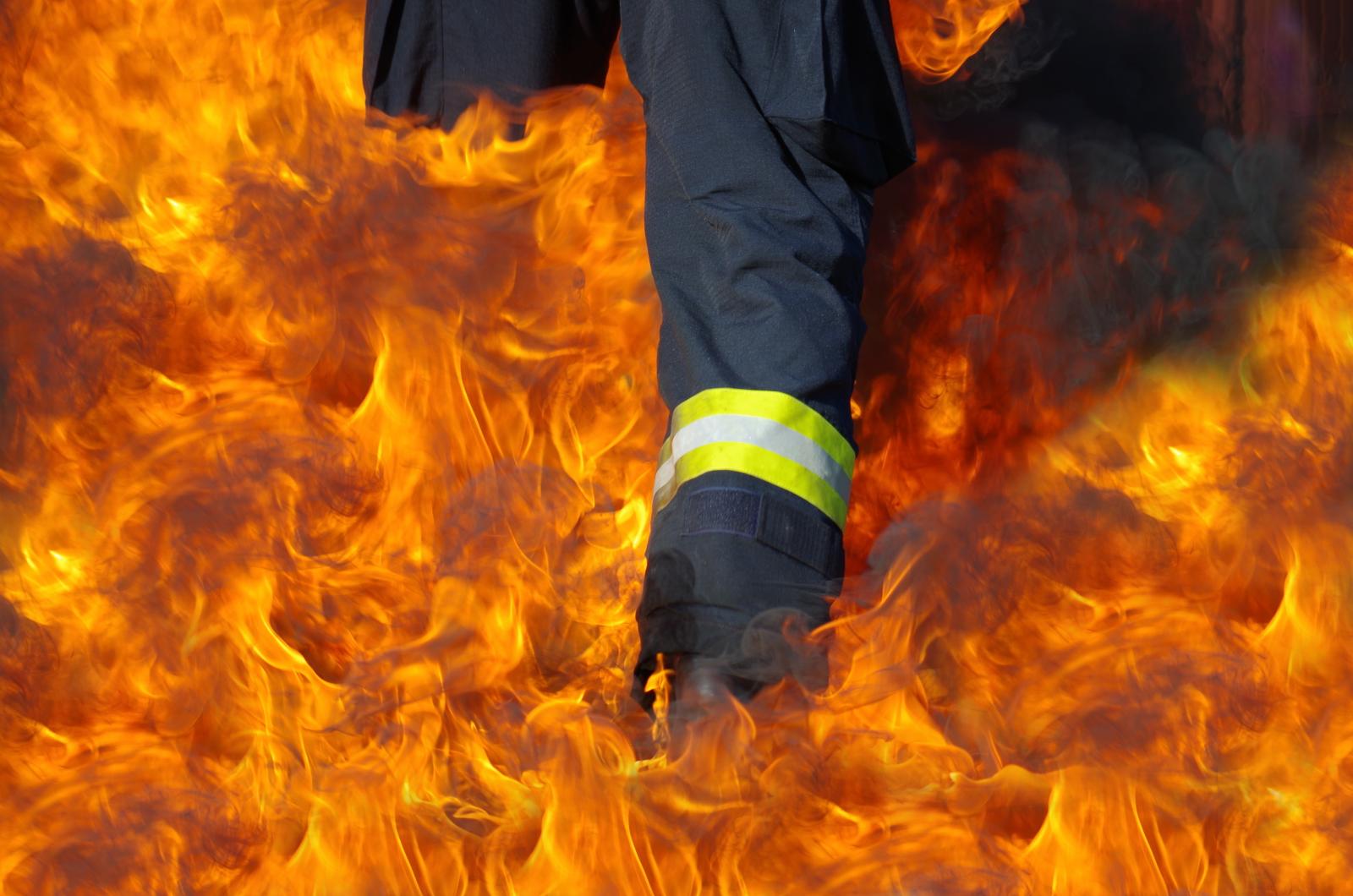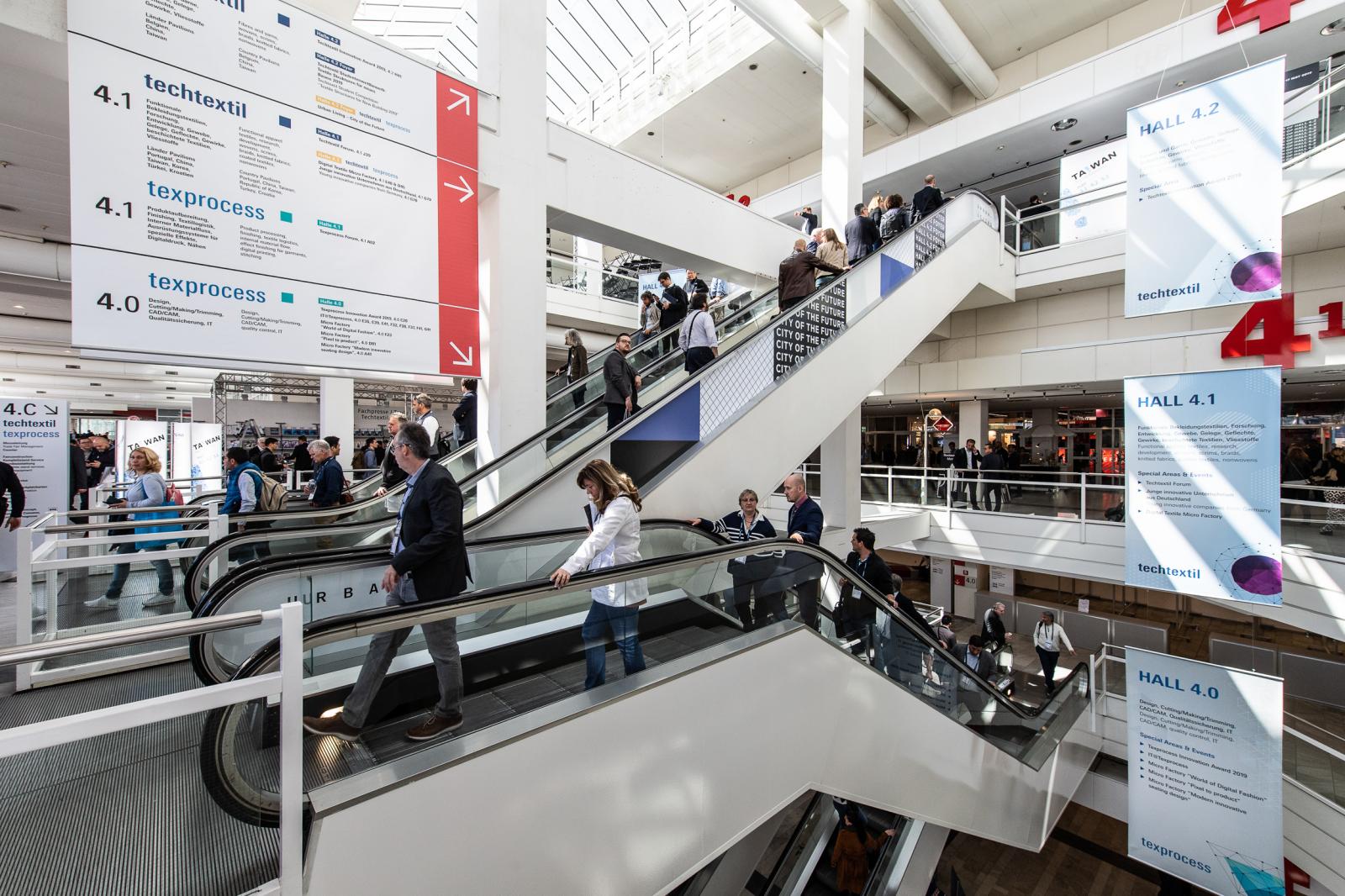Intelligent Textiles as Protection against PAH Toxins
Fraunhofer IWS Supports Industry Partners in the Development of New Protective Suits for Firefighters.
Polycyclic aromatic hydrocarbon (PAHs) are considered harmful to health, especially as potential carcinogens. For example, the molecular compounds of carbon and hydrogen atoms can arise in house fires when mattresses, curtains, wooden beams, plastic, or other objects made of organic materials burn.
Polycyclic Aromatic Hydrocarbons PAH enter the body through the skin and are deposited in fatty tissue. Because the human defense systems are unaware of the ring-shaped carbon compounds, the body does not break down these pollutants – they accumulate and concentrate. This increases the risk of carcinoma over the years. According to “Deutsche Gesetzliche Unfallversicherung” (DGUV) studies, this risk is limited if protective clothing is worn correctly. However, minor carelessness can lead to problematic exposures when firefighters are on duty for decades.
To better protect firefighters from these risks, the Fraunhofer Institute for Material and Beam Technology IWS in Dresden, together with partners from industry, has laid the groundwork for developing novel anti-PAK protective suits. The German Federal Ministry of Education and Research (BMBF) is funding the project with 1.24 million euros until December 2023 as part of the “Research for Civil Security” program.
The innovative protection concept of the new suits includes high-materials and intelligent monitoring: Modern nonwovens, as a central component of the protective suits, effectively prevent skin contact with the pollutants. Ultraviolet sensors are also integrated into the fabrics to determine when the textile protective shield is saturated with PAH and needs to be replaced. This provides double safety for rescue personnel. The new protective clothing has already passed the first tests in fire containers.
PAK-Accumulation over a Lifetime of Work Increases Cancer Risk
“On a single job, it may only be a few micrograms of PAH that get onto the skin through openings in the protective suit,” explains Felix Spranger, Group Manager Gas and Particle Filtration at Fraunhofer IWS. “The treacherous aspect of PAH is that they can continue to accumulate in the firefighters' bodies over an entire working life. Studies from Germany and the U.S. have shown increased incidences of cancer in this occupational group. Therefore, it was important to find solutions incorporating new technological approaches such as smart textiles.” For this purpose, Fraunhofer IWS joined forces with four other partners in 2020 to form the project “3D-Funktionsvliesstoffe mit integrierter Gassensorik für die Schutzbekleidung von Einsatzkräften” (3D-PAKtex, Engl: “3D functional nonwovens with integrated gas sensor technology for the protective clothing of emergency personnel”). To protect firefighters from the harmful PAH in flue gases and soot swirls in burning houses in the future, the collaborative partners pursued a two-pronged concept: on the one hand, the focus was on the development of fleece-based new filters, and on the other hand, on a sensor concept to monitor their functionality.
Activated Carbon Fleeces Filter Ring Molecules from Flue Gas
Fraunhofer IWS first identified suitable porous activated carbons that bind PAH particularly well. Project partner Norafin fixed these adsorbents with special binders in nonwovens optimized for fire applications. Norafin's partner S-GARD integrated the new additional nonwovens into a demonstration suit. The manufacturer added small closure pockets at sleeve openings, waistbands, and other points, which can accommodate the new additional filters using press studs at those points where, in the worst case, smoke gases could still enter the suit despite all insulation. If smoke gas flows past these spots, the fleece binds the toxins.
In addition, project partner JLM Innovation equipped the new filter fleeces with specifically engineered monitoring sensors based on fluorescence spectroscopy. These mini-spectrometers emit ultraviolet light of a precisely defined wavelength. When these UV rays hit PAH, the ring molecules first absorb their energy and then send back other UV rays at a slightly different wavelength. The sensors measure the returned light: The more intense, the higher the PAH concentration in the fleece. An electronic control unit in the firefighter's breast pocket evaluates this data and sends it to a smartphone via Bluetooth. The development and implementation of the repective software was accomplished by ATS Elektronik. It enables the rescuers to see in real-time how their PAH filters are filling up and when they need to be replaced.
In laboratory tests, the new nonwoven activated carbon filters have significantly reduced the flue gas PAH load. This was followed by practical simulations in fire containers: Experienced testers donned the suit prototypes, and set fire to mattresses, then rubber tires and other test objects in a shielded container to try out the new protective clothing in different fire scenarios.
“We will thoroughly evaluate these findings and continue to monitor the market to make a well-founded decision on possible series production,” announced Jonas Kuschnir of S-GARD. The new protective approach against PAHs entails certain additional costs, but the project’s results were promising.
High Market Potential for Intelligent Textiles Expected
Whatever the outcome of this decision, “3D-PAKtex” has, in any case, led to a considerable gain in expertise for the collaborative partners. The topic will also continue to occupy Fraunhofer IWS. Felix Spranger: “We still see some approaches, for example, to further improve the new protection technology's sensors and interfaces. From feedback, we know that industry partners still perceive great potential in such smart textiles, even beyond protective firefighting clothing.”
This is also consistent with the findings of international observers. For example, analysts at the British market research company IDTechEx expect the market for electronically enhanced or “smart” textiles to grow to the equivalent of around 713 million euros by 2033. Annual growth rates averaging 3.8 percent are expected.
Project Partners “3D-PAKtex”
- Fraunhofer IWS contributes its expertise in the selection of filter materials and analytics
- Norafin Industries from Mildenau in the Ore Mountains produces technical textiles
- Hubert Schmitz (“S-GARD”) from Heinsberg produces protective clothing for firefighters
- JLM Innovation from Tübingen is dedicated to sensor technology in intelligent textiles
- ATS Elektronik developed the required software in Wunstorf, Germany
protective suit firefighters Fraunhofer-Institut für Werkstoff- und Strahltechnik IWS Protective Textiles Polycyclic Aromatic Hydrocarbons PAH
Fraunhofer Institute for Material and Beam Technology IWS



